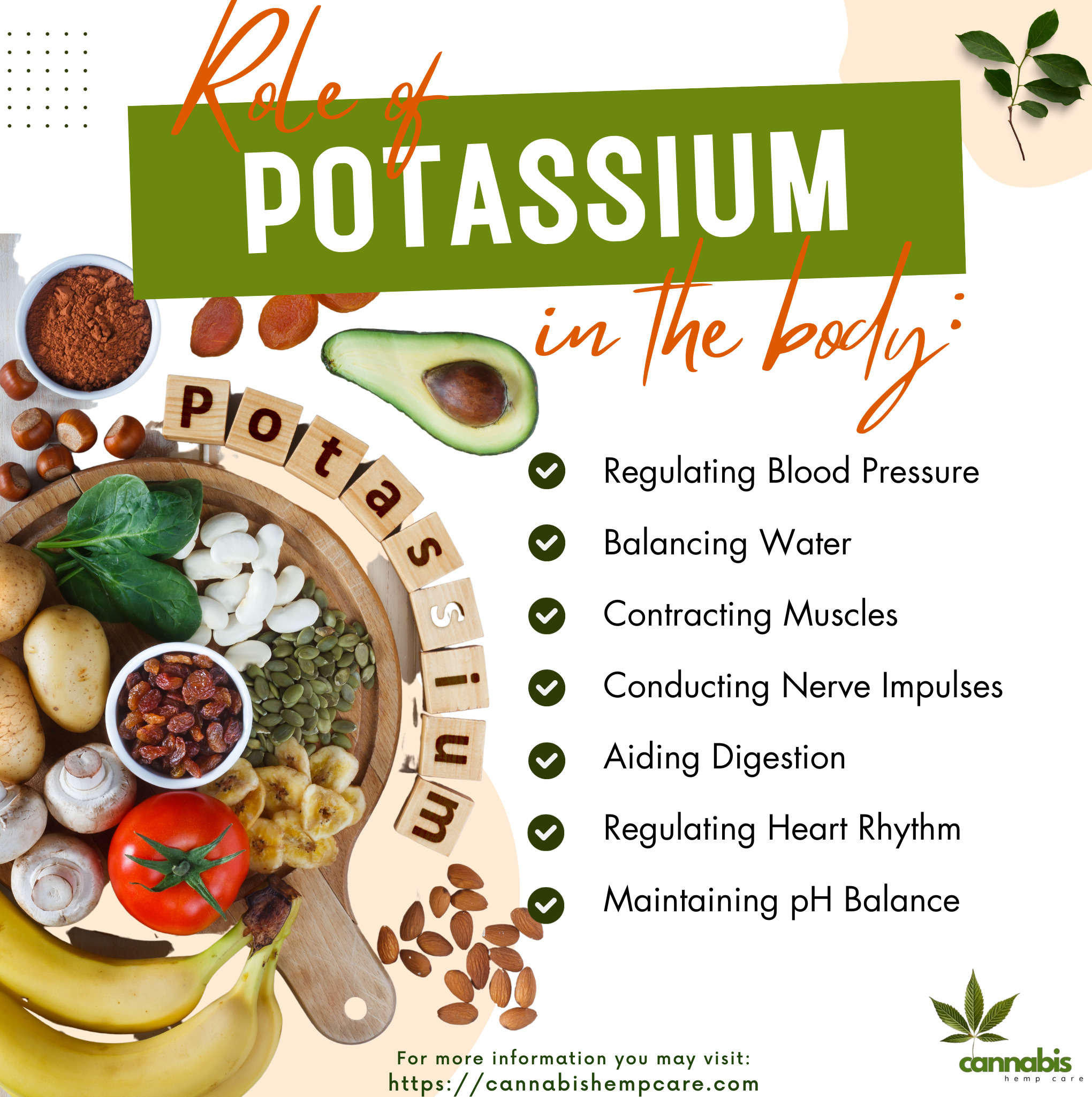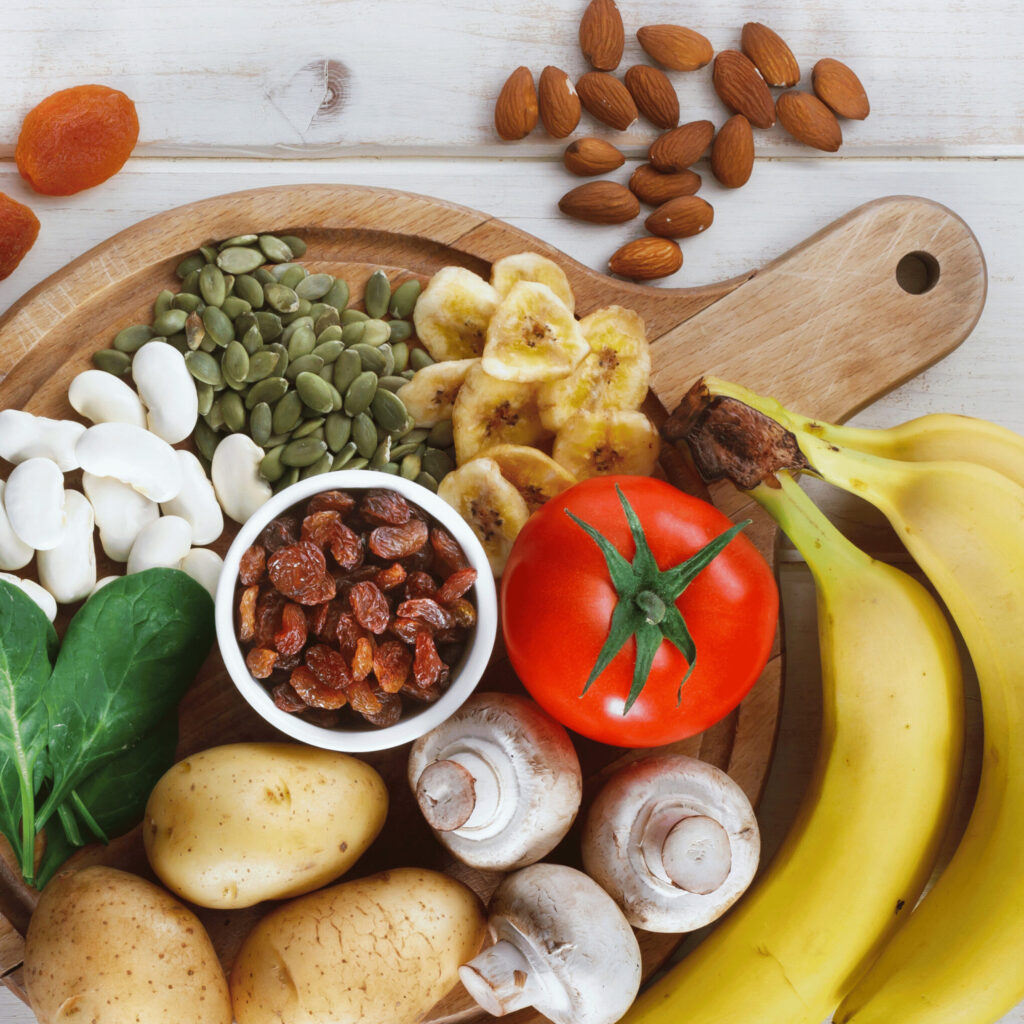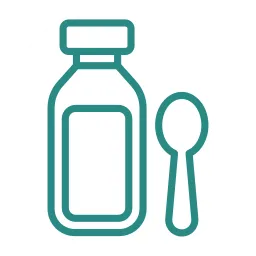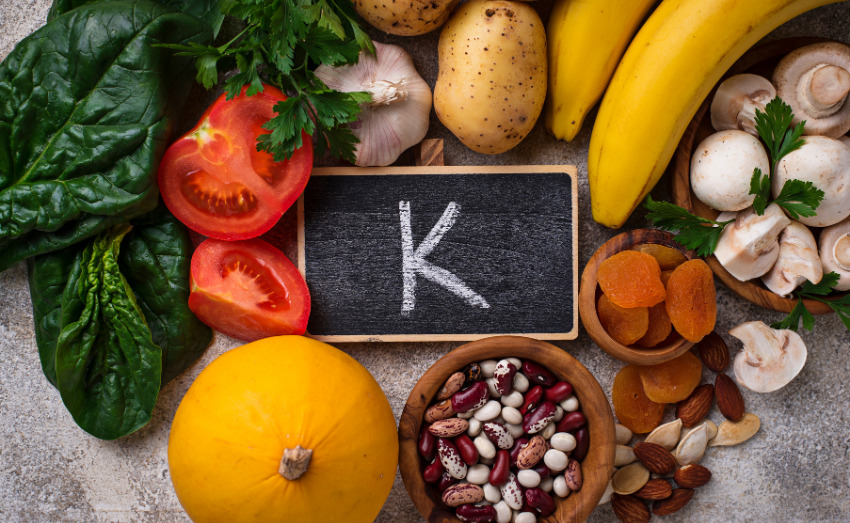Potassium, represented by the symbol K, is a vital mineral that plays a key role in numerous bodily functions.1 It is present in the food we consume and acts as an electrolyte, transmitting electrical impulses within the body.
What Is Potassium
Potassium is a vital electrolyte that transmits electrical impulses in the body2. It plays a key role in numerous critical bodily functions, such as:
- Regulating blood pressure
- Balancing water levels
- Facilitating muscle movements
- Transmitting nerve signals
- Aiding digestion
- Regulating heartbeats
- Balancing pH levels (acidity and alkalinity)
Since our bodies can’t produce potassium on their own, it’s crucial to get the right amount of potassium from our diet.
Role Of Potassium In The Body
Potassium assists in a range of essential body functions, including:

- Regulating Blood Pressure: Potassium is essential for keeping blood pressure levels normal.3
- Balancing Water: It assists in maintaining the body’s regular water balance.
- Contracting Muscles: Potassium is crucial for the contraction of muscles.
- Conducting Nerve Impulses: It facilitates the transmission of nerve impulses.
- Aiding Digestion: Potassium participates in the process of digestion.
- Regulating Heart Rhythm: It contributes to the regulation of heart rhythm and blood pressure.
- Maintaining pH Balance: Potassium aids in preserving the body’s pH balance.
Sources Of Potassium
Food is the primary source of potassium. Foods rich in potassium include:
- Fruits like apricots, bananas, kiwis, oranges, and pineapples
- Vegetables such as leafy greens, carrots, and potatoes
- Lean types of meat
- Whole grain products
- Beans and various nuts

Potassium Deficiency And Overdose
Consuming potassium intake can result in severe health complications. However, taking in too much can lead to temporary or permanent health issues. The kidneys play an important role in maintaining potassium balance as they excrete any surplus amounts through urine.
Deficiency
Several factors can lead to a deficiency in potassium, known as hypokalemia. These factors include conditions like kidney disease, overuse of diuretics, excessive sweat, diarrhea, vomiting, lack of magnesium, and the use of certain antibiotics such as carbenicillin and penicillin. Indicators of a lack of potassium encompass severe tiredness, muscle spasms or cramps, irregular heart rhythm, constipation, and feelings of nausea or vomiting.4
Overdose
Too much potassium can lead to a condition known as hyperkalemia. This is uncommon in individuals who maintain a balanced diet. Overdose risks include overconsumption of potassium supplements, kidney disorders, extended physical activity, use of cocaine, potassium-sparing diuretics, undergoing chemotherapy, diabetes, and severe burns. The most noticeable sign of high potassium levels is an irregular heartbeat, also known as arrhythmia. In extreme cases, it can be fatal.
Recommendation
The recommended daily intake of potassium can differ based on factors such as age, gender, and specific health conditions. Here are some general guidelines:
- The World Health Organization suggests that adults should have a minimum of 3,510 mg of potassium each day.
- The American Heart Association advises that most women should consume 2,600 milligrams of potassium per day, and men should have 3,400 milligrams.5
- For females aged 14-18 years, the suggested adequate intake (AI) is 2,300 mg per day; for those aged 19 and above, it’s 2,600 mg. For males in the age group of 14-18 years, the AI is 3,000 mg; for those aged 19 and above, it’s 3,400 mg.
Safety And Side Effects
Potassium, when consumed orally up to 100 mEq (3900 mg) daily, is typically safe for most individuals. Yet, it may lead to stomach discomfort, nausea, diarrhea, vomiting, or gas in some people.
Overdosing on potassium can result in gastrointestinal issues, kidney harm, and small bowel lesions. It can also interact with certain medications like ACE inhibitors and various diuretics.
Excessive potassium is dangerous and can trigger symptoms like burning or tingling sensations, weakness, paralysis, lethargy, dizziness, confusion, low blood pressure, irregular heartbeat, and in severe cases, death.6

Final Words
Potassium is an essential mineral that significantly contributes to multiple bodily functions. It’s important for blood pressure regulation, water balance maintenance, muscle contraction, nerve impulse conduction, digestion, heart rhythm regulation, and pH balance maintenance. The primary sources of potassium are foods such as fruits, vegetables, lean meats, whole grains, beans, and nuts. Both a deficiency and an excess of potassium can result in severe health complications. Hence, it’s vital to maintain a balanced potassium intake through a healthy diet and seek personalized advice from a healthcare provider. Indeed, potassium is a powerful mineral that greatly enhances our overall health and well-being.
FAQs
Sources
- The Editors of Encyclopedia Britannica. “Potassium | Definition, Properties, & Reactions.” Encyclopædia Britannica, 7 Dec. 2018, www.britannica.com/science/potassium. Accessed 24 Oct. 2023. ↩︎
- Cherney, Kristeen. “Potassium.” Healthline, 16 July 2018, www.healthline.com/health/potassium#TOC_TITLE_HDR_1. Accessed 24 Oct. 2023. ↩︎
- “The Health Benefits of Potassium.” Verywell Health, www.verywellhealth.com/health-benefits-of-potassium-4588613. Accessed 24 Oct. 2023. ↩︎
- Australia, Healthdirect. “Foods High in Potassium.” Www.healthdirect.gov.au, 2 June 2021, www.healthdirect.gov.au/foods-high-in-potassium. Accessed 24 Oct. 2023. ↩︎
- “A Primer on Potassium.” Www.heart.org, 2018, www.heart.org/en/healthy-living/healthy-eating/eat-smart/sodium/potassium. Accessed 24 Oct. 2023. ↩︎
- “Potassium: Health Benefits, Side Effects, Uses, Dose & Precautions.” RxList, www.rxlist.com/supplements/potassium.htm. Accessed 24 Oct. 2023. ↩︎




































